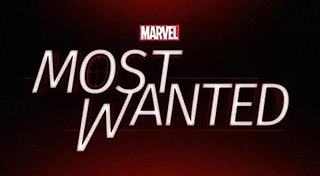
His Majesty O'Keefe is a 1954 American adventure film directed by Byron Haskin and starring Burt Lancaster. The cast also included Joan Rice, André Morell, Abraham Sofaer, Archie Savage, and Benson Fong. The screenplay by Borden Chase and James Hill was based on the novel of the same name by Laurence Klingman and Gerald Green (1952).

Agatha is a 1979 British drama thriller film directed by Michael Apted and starring Vanessa Redgrave, Dustin Hoffman and Timothy Dalton. It was written by Kathleen Tynan. The film focuses on renowned crime writer Agatha Christie's famous 11-day disappearance in 1926. The film was released 9 February 1979, receiving generally positive reviews from critics, who praised the production values and performances.

Juanita Joan Nielsen was an Australian newspaper founder and owner, publisher, journalist, model, urban conservationist, and heiress. She disappeared after attending a meeting at the Carousel nightclub in Kings Cross on 4 July 1975. Her body has never been found.

Caddie is an Australian film biopic directed by Donald Crombie and produced by Anthony Buckley. Released on 1 April 1976, it is representative of the Australian film renaissance which occurred during that decade. Set mainly in Sydney during the 1920s and 1930s, including the Great Depression, it portrays the life of a young middle class woman struggling to raise two children after her marriage breaks up. Based on Caddie, the Story of a Barmaid, a partly fictitious autobiography of Catherine Beatrice "Caddie" Edmonds, it made Helen Morse a local star and earned Jacki Weaver and Melissa Jaffer each an Australian Film Institute Award.
Elizabeth Alexander is an Australian actress, director and teacher.

Country Life is a 1994 Australian drama film, adapted from the 1899 play Uncle Vanya by Anton Chekhov. The film was directed by Michael Blakemore. The cast includes Sam Neill, Greta Scacchi, John Hargreaves and Googie Withers. It was entered into the 19th Moscow International Film Festival.
Hunter was an Australian espionage adventure television series screened by the Nine Network from Tuesday 4 July 1967 to March 1969. The series was created by Ian Jones and produced by Crawford Productions.

Newsfront is a 1978 Australian drama film directed by Phillip Noyce, and starring Bill Hunter, Wendy Hughes, Chris Haywood and Bryan Brown. The screenplay is written by David Elfick, Bob Ellis, Philippe Mora, and Noyce. The original music score is composed by William Motzing. Shot on location in Sydney, Australia, the film is shot in black and white, and colour, incorporating actual newsreel footage.

Stone is a 1974 Australian outlaw biker film written, directed and produced by Sandy Harbutt. It is a low budget film by company Hedon Productions.

Heatwave is a 1982 Australian biographical crime thriller film directed by Phillip Noyce. Produced by Hilary Linstead, the film is based on the sudden disappearance of Juanita Nielsen, the famous Australian activist and journalist. It stars Judy Davis and Richard Moir in leads; alongside Chris Haywood, Bill Hunter, John Gregg and Carole Skinner in another pivotal roles. It was the second of two films inspired by the story that came out at that time, the first being The Killing of Angel Street (1981).

The Night the Prowler is a 1978 Australian film written by Patrick White, produced by Anthony Buckley and directed by Jim Sharman. Ruth Cracknell was nominated in 1979 for an AFI Award for Best Actress in a Lead Role for her part.
Donald Charles Crombie is an Australian film and television director and screenwriter.
Jeffrey McDonald "J. C." Chandor is an Academy nomenee American filmmaker, best known for writing and directing the films Margin Call (2011), All Is Lost (2013), A Most Violent Year (2014), Triple Frontier (2019) and Kraven the Hunter (2024).
...Maybe This Time is a 1980 Australian feature film starring Bill Hunter, Mike Preston, Ken Shorter and Judy Morris. It was the first feature directed by Chris McGill.
Kitty and the Bagman is a 1983 Australian film about gangsters in the 1920s. It was based on the rivalry of Kate Leigh and Tilly Devine.

Alexander Mervyn Archdale was a British actor, manager and theatre producer. He had a very long career in both the theatre and in film, stretching from the 1930s to the 1980s. He spent the latter part of his life and career in Australia.
"The Affair" is a 1965 Australian television play based on the novel by C. P. Snow. It starred Roger Climpson, Richard Meikle and Anne Haddy and aired on the ABC as part of Wednesday Theatre.

Marvel's Most Wanted is an unaired American television pilot created by Jeffrey Bell and Paul Zbyszewski for ABC, based on the Marvel Comics characters Bobbi Morse and Lance Hunter. It is set in the Marvel Cinematic Universe (MCU) and acknowledges the continuity of the franchise's films and other television series. A spin-off from Agents of S.H.I.E.L.D., the pilot was written by Bell and Zbyszewski, and directed by Billy Gierhart.
Allen Bickford is an Australian actor of film and TV. He has appeared in classic Australian TV series such as Matlock Police and Homicide as well as the British series Man at the Top.

The Marian Street Theatre is located in the Sydney suburb of Killara. The theatre previously played a significant role in the cultural life of the North Shore and is widely remembered by former patrons and theatre lovers across Sydney.












